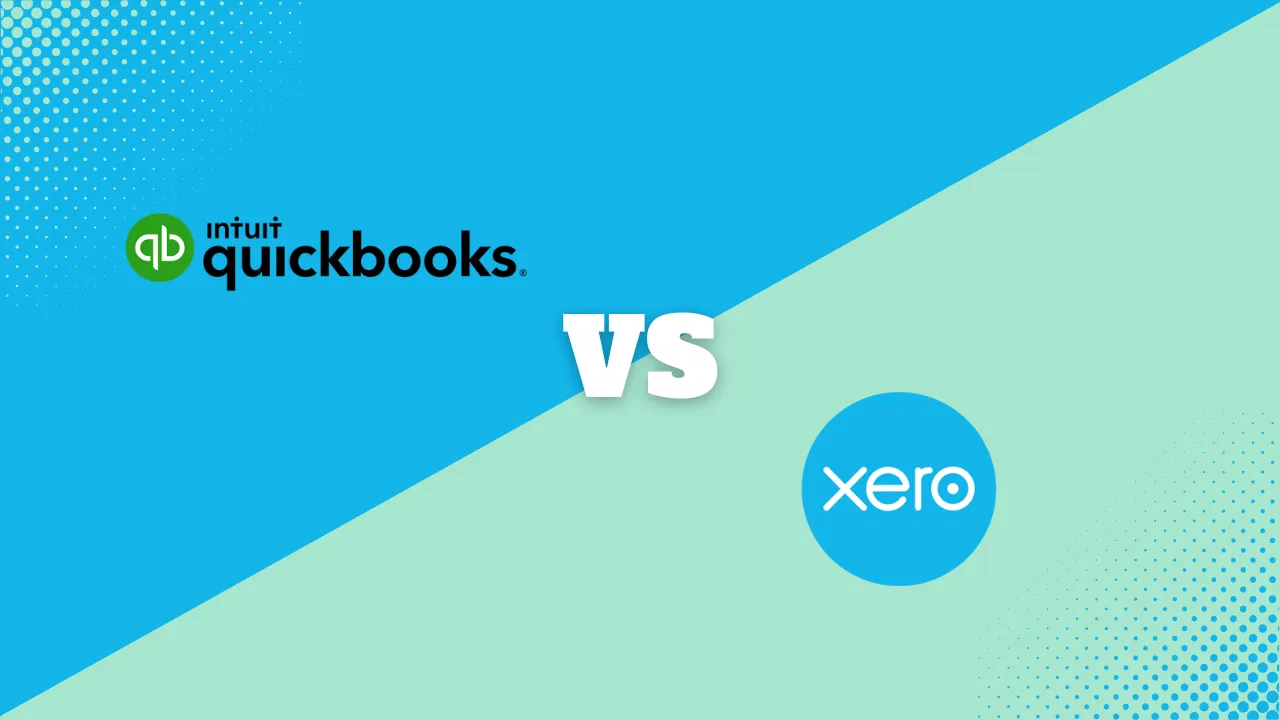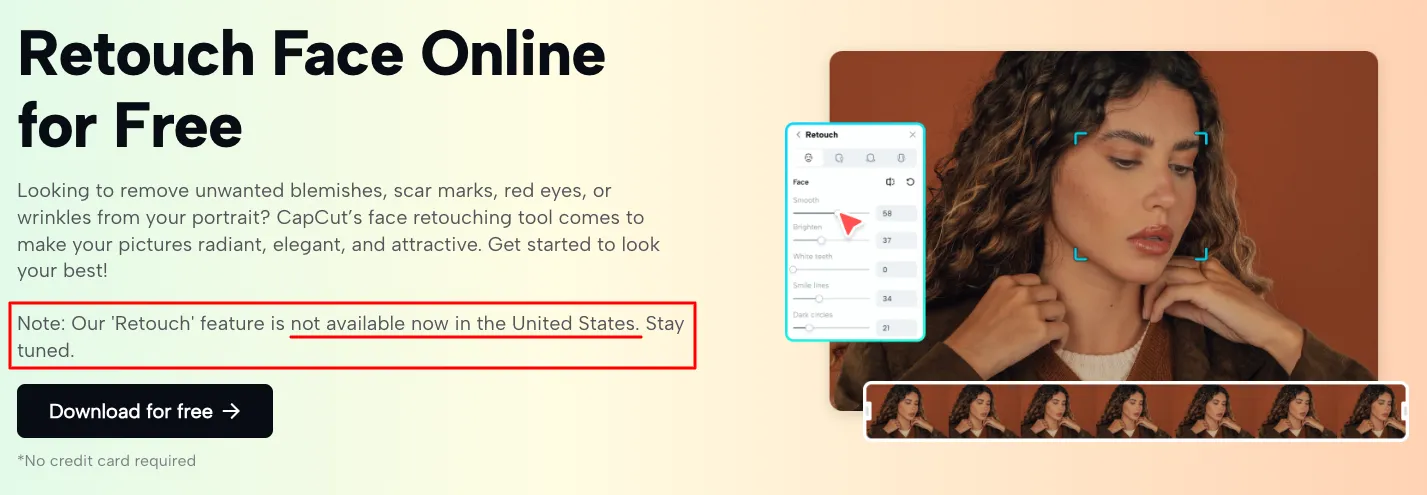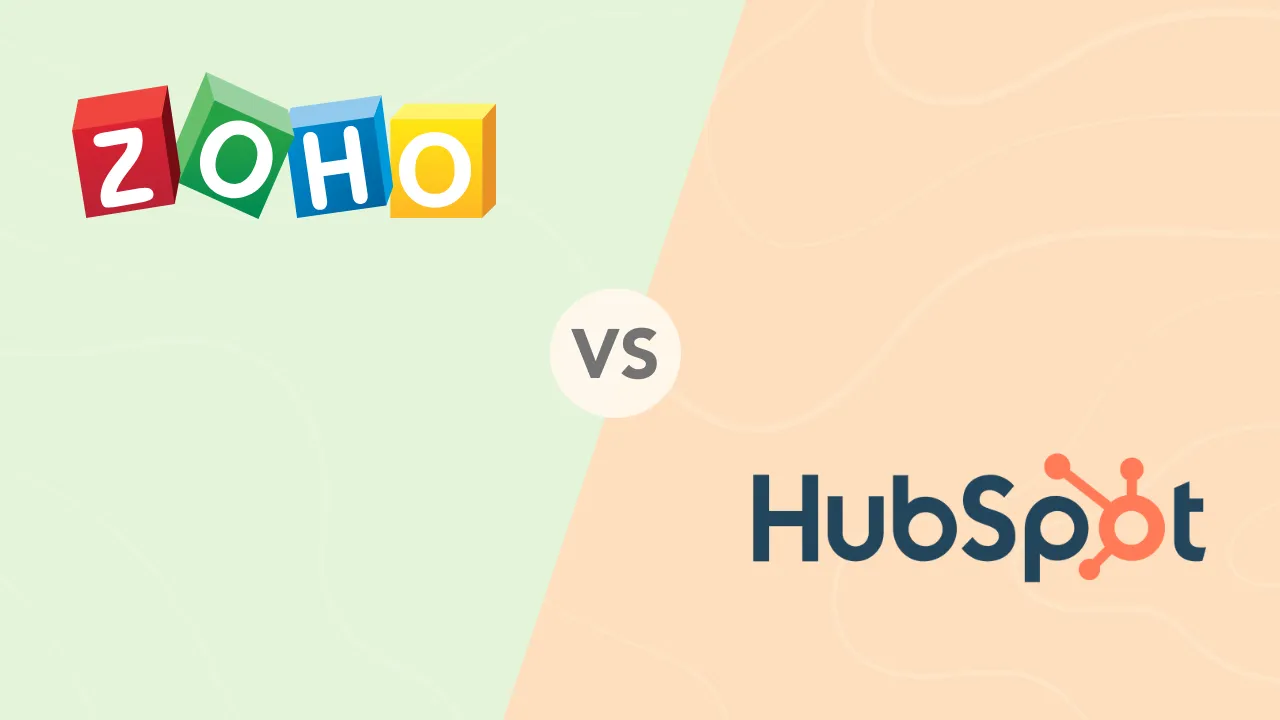Holiday Marketing Made Easy: Trends, Stats, and Actionable Tips for 2025

The holiday season is the most critical time for e-commerce, shaping annual revenue for many businesses. In 2023, U.S. holiday e-commerce sales reached $221 billion, a 4.9% increase from 2022, and 2024 is expected to see even higher growth (source). To stay competitive, businesses must analyze holiday e-commerce trends, adapt to holiday consumer behavior insights, and implement actionable strategies.
Key 2024 Holiday Shopping Trends
- Electronics dominate sales: Consumer electronics continue to top wish lists, with a projected 7% growth between 2024–2029 (source).
- Seasonal discounts drive urgency: Black Friday and Cyber Monday remain pivotal, with shoppers hunting for deals and exclusive offers.
- 52% of online shoppers look for products internationally (source).
- 13% of all shoppers, including 20% of Gen Z consumers, plan to use social media platforms to purchase holiday gifts (source).
- 99% of customers look for reviews when they shop online (source).
- Mobile shopping surge: Over 60% of global e-commerce sales came from mobile devices in 2023 (source).
- According to Statista, roughly 30% of global internet users who made weekly purchases in 2023 did so via mobile phone (source). That is a huge audience looking at mobile-first.
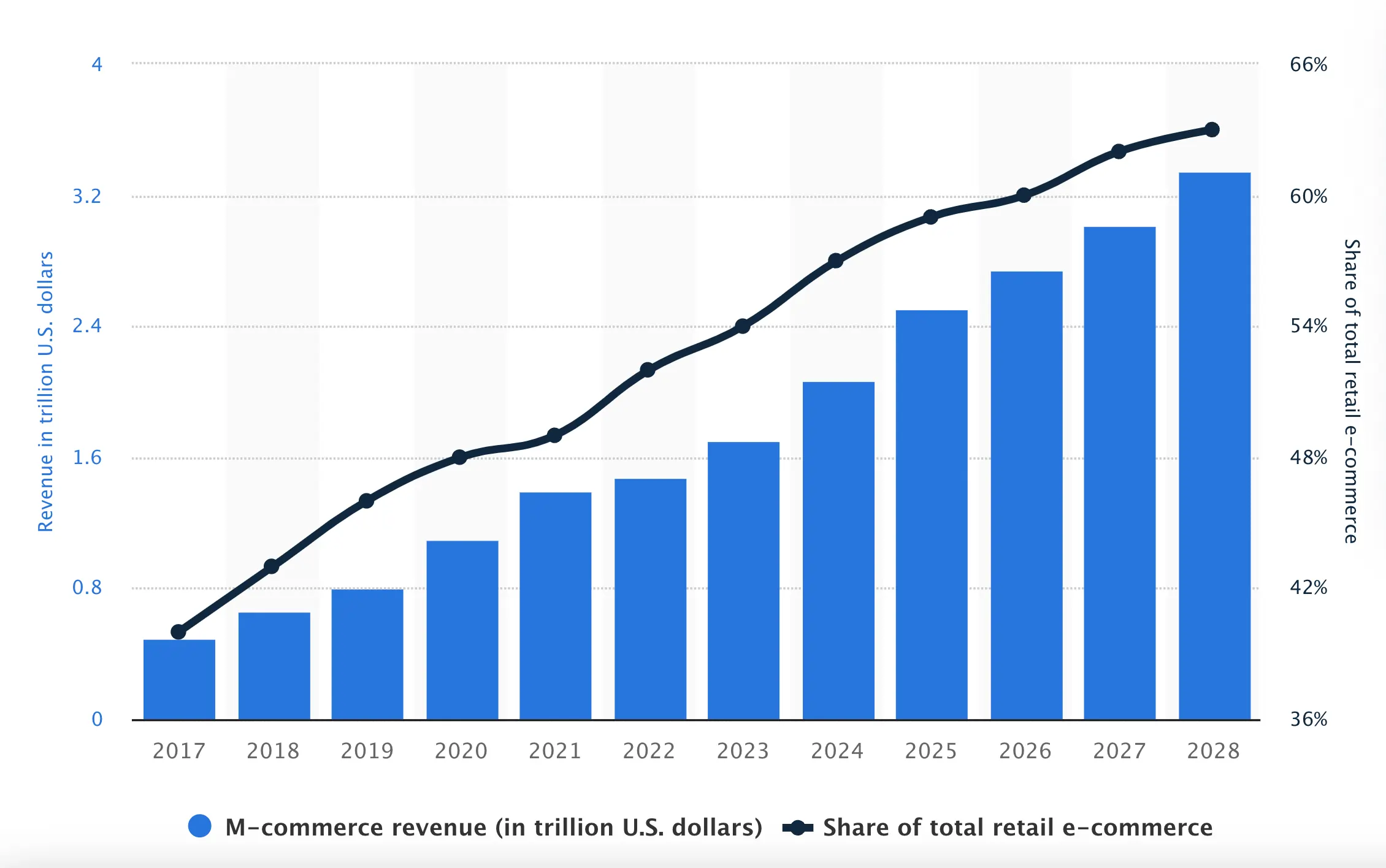
Source: Statista
Below, we explore holiday e-commerce trends, supported by data and insights to guide your 2024 strategy.
Consumer Electronics: A Powerhouse for Holiday Sales
Electronics have become a holiday shopping staple, with products like smartphones, gaming consoles, laptops, and wearable tech topping wish lists worldwide.
In 2023, consumer electronics saw an uptick in sales, with projections for a 7% growth between 2024-2029. As these categories continue to dominate the market, brands have a golden opportunity to tap into the seasonal demand and capitalize on increased online shopping activity.
What Makes Consumer Electronics Holiday Favorites?
- Practicality and demand: Items like laptops, headphones, and smart home devices are functional gifts suitable for all demographics.
- Seasonal discounts: Electronics often feature some of the steepest price cuts during Black Friday and Cyber Monday, driving significant sales.
- Cross-generational appeal: While younger shoppers lean towards trendy categories, electronics attract interest across all age groups.
- Excitement factor: The launch of next-gen devices and new features adds to the holiday allure.
Actionable Tips for Electronics Retailers
To stand out in the highly competitive electronics market, brands need to implement targeted strategies that cater to the unique nature of tech products and the holiday rush.
1. Highlight Product Bundles
One of the most effective ways to increase sales and perceived value is to offer product bundles.
Create holiday bundles that are exclusive to the season, such as a “Holiday Gamer’s Pack” for gaming consoles or a “New Year’s Tech Upgrade Bundle” for smartphones and wearables. These curated deals make it easier for customers to check off multiple gift list items at once.
2. Leverage Influencer Collaborations for Unboxings or Tech Reviews
Tech products, especially high-ticket items like the latest smartphones, gaming consoles, or laptops, often require in-depth product education.
- Influencers, particularly those in the tech niche, offer an invaluable advantage here.
- Their unboxing videos, product reviews, and hands-on demonstrations help build consumer trust and create excitement.
Partner with influencers who specialize in technology or gaming and have them create unboxing videos or detailed product reviews that showcase the key features of your holiday electronics.
A report from Influencer Marketing Hub shows that product reviews are one of the most effective content types for driving purchase decisions in the electronics category (source).
 Unlimited campaigns
Unlimited campaigns  Top influencers and creators
Top influencers and creators 3. Optimize for Mobile and Quick Checkout
With more than 60% of global e-commerce sales now coming from mobile devices (source), electronics retailers must ensure their mobile shopping experience is seamless.
- Customers often make impulse buys on their smartphones, especially during flash sales or holiday promotions.
- Ensure your website or app is optimized for mobile shopping to reduce friction and encourage higher conversion rates.
Streamline the checkout process by offering mobile-friendly payment options like Apple Pay, Google Pay, or one-click checkout.
4. Create Holiday-Themed Ads and Promotions
Electronics shoppers expect holiday discounts and promotions, so offering timely, exclusive deals is essential for drawing attention to your products. Creating ads that tap into the festive spirit of the season can drive additional conversions.
- Use holiday-themed CTAs, e.g., “Unwrap Tech Deals This Black Friday.”
- Incorporate countdown timers for flash sales to drive urgency.
Leverage platforms like Google Ads or Facebook to target your ideal demographic based on browsing history and interests.
5. Offer Extended Return Policies and Free Shipping
Electronics can be a significant investment, and shoppers will appreciate the peace of mind that comes with extended return policies and free shipping — particularly as gift-giving season approaches.
- Provide extended return periods and promote free shipping.
- These features reduce buyer hesitation, especially for high-ticket items.
Beauty and Cosmetics: A Seasonal Goldmine
The beauty industry shines brightly during the holiday season, driven by consumer demand for giftable items like curated sets, exclusive launches, and limited-edition packaging.
In 2023, beauty e-commerce sales saw a 10% growth to $446 billion in sales, with mobile shopping contributing significantly to this uptick (source). This trend highlights how brands can leverage the season to not only increase sales but also build lasting customer loyalty.
What Makes Beauty Products Holiday Favorites?
- Giftable appeal: Makeup and skincare products are compact, affordable, and suitable for a wide range of recipients, making them ideal stocking stuffers or premium gifts.
- Seasonal exclusivity: Limited-edition shades, holiday-themed packaging, and exclusive formulas drive urgency and excitement.
- High engagement: Beauty content is among the most shared on social media, with influencers and tutorials amplifying visibility.

Actionable Tips for Beauty Brands
1. Launch Exclusive Holiday Collections
Create limited-edition holiday-themed collections. For example, Sephora’s Holiday Favorites Gift Set consistently generates buzz and sells out quickly.
2. Incorporate Augmented Reality (AR)
Follow the lead of brands like L’Oreal, and utilize AR technology to enable virtual try-ons for lipsticks, eyeshadows, or foundation matches.
Virtual try-ons enhance convenience as well as reduce return rates by ensuring buyers make informed choices.
3. Mobile Optimization for Sales
With a large portion of beauty e-commerce traffic coming from mobile devices, ensure your website is fully optimized for mobile shopping. Streamlined checkout processes, mobile-exclusive discounts, and easy navigation can significantly boost sales.
4. Leverage User-Generated Content (UGC)
Encourage customers to share photos or reviews of their purchases on social media using branded hashtags. UGC can serve as authentic testimonials, increasing trust and enticing new buyers.
5. Bundle and Upsell
Offer value bundles, like skincare sets or “complete looks,” to encourage customers to spend more while feeling like they’re getting a deal. Bundles often simplify gift-giving decisions, making them particularly appealing during the holidays.
6. Collaborate with Influencers
Partner with beauty influencers for holiday tutorials or unboxing videos that highlight your products. Micro-influencers can be especially effective in creating a sense of authenticity and relatability.
Fashion: A Holiday Staple Every Year
Fashion brands are a significant beneficiary of the holiday shopping frenzy.
As 2023 showed, online apparel sales spiked 15% during Black Friday and Cyber Monday, with consumers eagerly seeking out both gifts and personal items for the season (source).
What Makes Fashion Holiday Favorites?
- Gift appeal: Fashion items, particularly clothing and accessories, make perfect gifts, thanks to their wide range of styles, price points, and fit options.
- Seasonal demand: With cooler weather and upcoming holiday parties, there is an increased demand for stylish, practical winter wear.
- Social media buzz: Fashion is one of the most photographed and shared product categories, especially when influencers and content creators promote trendy outfits and holiday styles.

Actionable Tips for Fashion Brands During the Holiday Season
1. Offer Size-Inclusive Collections
A growing number of fashion brands are expanding their size offerings to meet the demands of a diverse customer base. In 2023, brands like Savage X Fenty saw increased engagement by offering extended sizing options (source).
Don’t just offer larger sizes—ensure the marketing campaigns highlight inclusivity to create a welcoming atmosphere for all shoppers.
2. Highlight Versatility with Seasonal Items
Consumers are looking for value during the holidays, and versatile pieces like cozy sweaters, stylish layering options, or multipurpose accessories are key to capturing their attention.
Think about the way Uniqlo markets its affordable yet versatile outerwear that can be worn throughout the year, increasing overall purchase potential.
3. Seasonal Marketing and Timely Promotions
Timing is everything in fashion. Offering early-bird promotions before peak shopping dates like Black Friday and Cyber Monday can generate early buzz while creating urgency closer to the actual dates with flash sales, first-timer discounts, worldwide delivery, or “last chance” offers will help convert hesitant buyers.
Look to brands like ASOS for inspiration here.
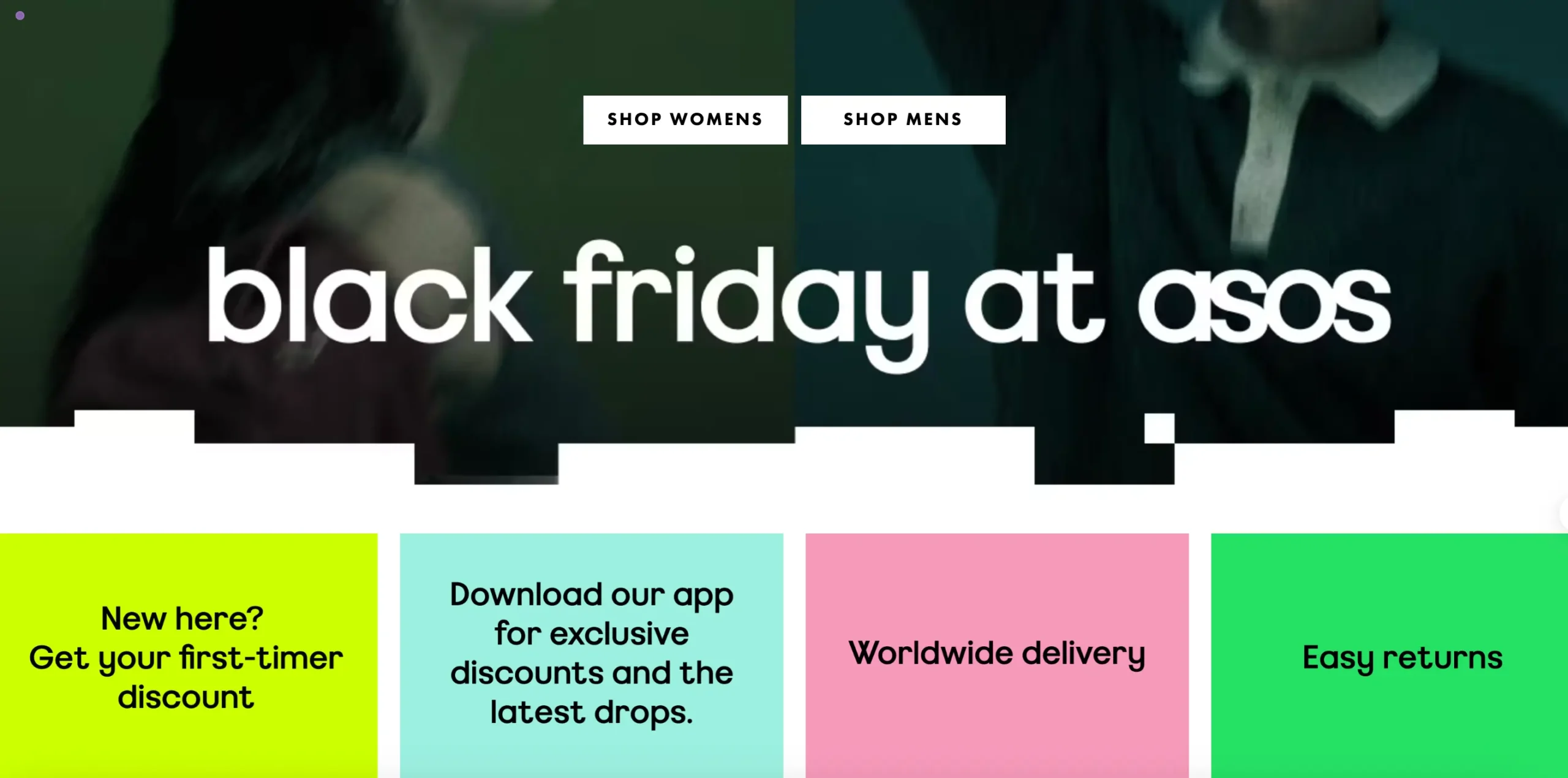
4. Utilize Influencers for Styling Ideas
Fashion influencers and content creators play a massive role in shaping consumer purchasing decisions. Partner with influencers to showcase how different holiday styles can be put together.
5. Create Personalized Shopping Experiences
Shoppers are increasingly drawn to personalized experiences, whether it’s through product recommendations based on browsing history or custom styling advice. AI-powered tools, such as virtual try-ons for accessories or AI-generated size recommendations, can also help drive customer confidence in their purchases.
6. Leverage Mobile-First Shopping:
With mobile commerce steadily increasing, ensuring that your e-commerce site is optimized for mobile is crucial. Fast-loading pages, mobile-friendly checkouts, and engaging mobile ads all contribute to a higher conversion rate during the holiday shopping season.
Key Trends to Watch in 2024 for Fashion E-commerce
1. Sustainability
Eco-consciousness is a growing trend, and consumers are demanding more sustainable products. From organic cotton to recycled materials, fashion brands can attract environmentally conscious buyers by making sustainability a part of their holiday campaigns.
Brands like Patagonia and Everlane have successfully incorporated sustainable practices into their collections, which has resonated with younger generations.
2. Live Shopping
Live video shopping has become a game-changer for e-commerce, especially during the holiday season. Influencers and brands are leveraging platforms like Facebook Live, Instagram Live, and TikTok to showcase products in real-time. These interactive sessions allow consumers to see items in action, ask questions, and even place orders directly through comments or embedded links.
3. Social Commerce
Shopping directly through platforms like Instagram, Facebook, and TikTok is growing. Many brands are creating “shoppable” posts and ads on these platforms, which allow customers to purchase items directly from social media.
In fact, Instagram’s in-app shopping feature saw a 70% increase in usage during the 2023 holiday season (source).
Maximize Visibility with Comprehensive Digital Marketing Strategies
During the competitive holiday season, implementing data-driven, actionable strategies is critical for standing out. Below is a refined list of strategies supported by accurate data:
1. Leverage Seasonal Keywords
- Seasonal search terms like “Cyber Monday deals” and “Christmas gift ideas” experience significant traffic surges during holidays.
- Tip: Use SEO tools like Ahrefs and SEMRush to track high-performing keywords in real time and update your content strategy accordingly. For example, optimize product pages, blog content, and paid ads around trending terms.
- Local terms, such as “holiday discounts in [city],” can also enhance visibility for location-specific campaigns.






2. Utilize Retargeting Ads
- Retargeting ads boost conversion. Retargeted website visitors are reportedly 70% more likely to convert (source).
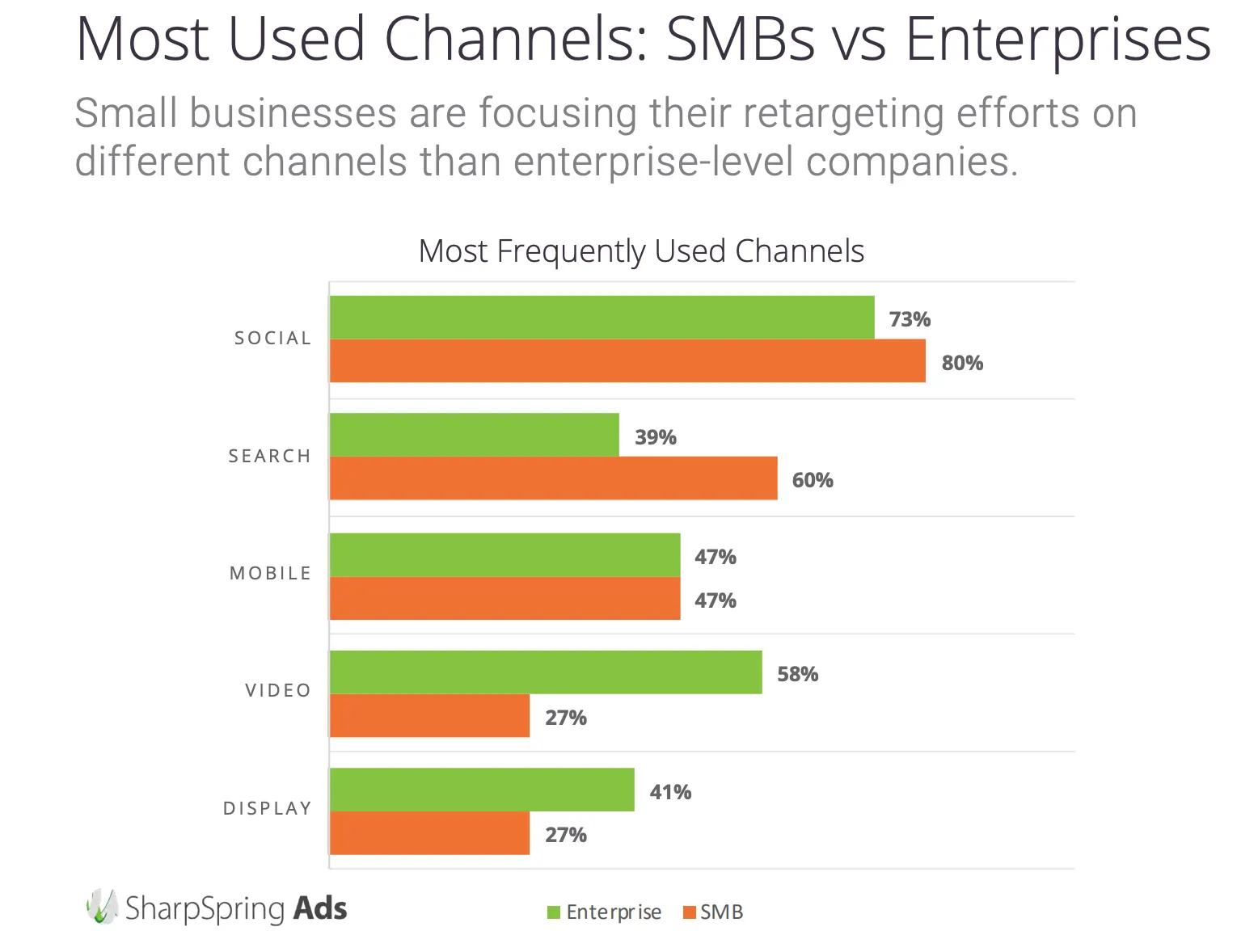
- Tip: Platforms like Google Ads and Facebook Ads enable precise retargeting campaigns, such as targeting abandoned cart users with personalized promotions (e.g., “10% off to complete your purchase”). Combine these with urgency tools like countdown timers to increase effectiveness.
3. Personalized Email Campaigns
- Personalized emails see 6x higher transactional rates compared to generic ones (source).
- Tip: Use dynamic platforms like Mailchimp or Constant Contact to segment audiences by behavior (e.g., past purchases, browsing history). Tailor emails with product recommendations, holiday gift guides, or exclusive discounts.
 Easy template creation using drag-and-drop
Easy template creation using drag-and-drop  We love this system
We love this system  Responsive email template builder
Responsive email template builder  A/B testing to improve email conversions
A/B testing to improve email conversions  Optimize engagement with stunning emails
Optimize engagement with stunning emails  Respected company with a history of reliability
Respected company with a history of reliability  Full service business management tools
Full service business management tools  Integrate SMS & email marketing campaigns
Integrate SMS & email marketing campaigns 4. Leverage User-Generated Content (UGC)
-
- 79% of consumers trust UGC, which significantly influences purchasing decisions (source).
- Tip: Run campaigns encouraging customers to share photos with your products using branded hashtags, such as #HolidayWith[YourBrand]. Incentivize participation with discounts or contests and repurpose the content across email, social media, and product pages.
5. Seasonal Influencer Collaborations
- Influencers, particularly micro-influencers (10k–100k followers), yield higher engagement rates and ROI.
- Tip: Collaborate with niche influencers to create holiday-themed content such as gift guides or giveaways. Use platforms like Popular Pays to identify ideal partners based on engagement metrics.
6. Focus on Top Holiday Shopping Platforms
Key platforms for holiday campaigns:
- Amazon: Leverage Prime benefits for expedited delivery.
- Etsy: Highlight personalized, handmade items.
- Social media: Use Instagram and TikTok for shoppable posts and short-form video ads.
Tip: Repurpose TikTok videos as Instagram Reels and YouTube Shorts to maximize reach across platforms without extra production costs.
Final Thoughts
With the 2024 holiday shopping season well on its way, brands must stay attuned to emerging trends and shifting consumer behaviors. From the rise of social media as a purchasing platform to the power of live video shopping, these developments underscore the importance of adaptability and innovation in retail strategies. Integrating technologies like augmented reality (AR) and leveraging data-driven personalization can further enhance the shopping experience, creating more meaningful connections with customers.
For businesses, this season offers a prime opportunity to stand out by meeting consumers where they are — whether that’s through seamless mobile apps, engaging live streams, or sustainable product offerings. By aligning with these trends, brands can boost holiday sales and also build loyalty that extends into the new year.
FAQs
Q: What are the top holiday shopping platforms in 2024?
A: Amazon, Etsy, and social media platforms like TikTok and Instagram.
Q: Why is mobile shopping crucial during the holidays?
A: Over 70% of e-commerce traffic now comes from mobile devices.
Q: What’s the importance of tracking EMV?
A: It quantifies the monetary value of influencer-driven exposure, showing ROI.
Q: How can small businesses compete during the holidays?
A: Focus on niche products, personalized service, and creative digital marketing campaigns.










